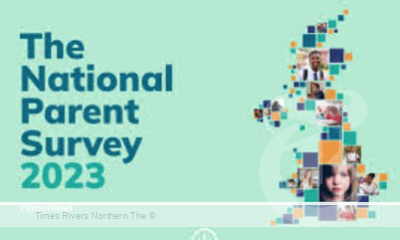Being connected to others is key to mental wellbeing
Zoetis
Zoetis and Beyond Blue support the mental health of Australia’s rural communities
Increasing interest rates, inflation, rising living costs and concerns about the future are among the primary causes of community concern for people living in regional Australia, according to a new survey by Beyond Blue. However, despite the importance of seeking help for mental health, many Australians are hesitant to do so, especially in rural areas where there is a stigma surrounding mental illness.
Advertisements

Research shows that being connected to others is crucial for mental wellbeing and can serve as a protective factor against anxiety and depression. Zoetis, the leading animal health business, has partnered with Beyond Blue for seven years to support mental health initiatives and reduce stigma around mental illness in rural and regional Australia. During this time, Zoetis has raised $700,000 for the Beyond Blue Support Service by donating $5 from each sale of the company’s livestock, pig, and poultry vaccines and drenches. In 2023, Zoetis has set a goal to raise an additional $100,000 by the end of the year.
Lance Williams, Zoetis Senior Vice President and Cluster Lead, Australia and New Zealand, says, “Zoetis works closely with rural Australia through interactions with the country’s farming community, agricultural stores, veterinarians and their families. We are proud to once again be supporting Beyond Blue and the important work they do.”
“The farming community has endured many challenges over the years. Through economic insecurity, social isolation, loneliness, and insecure work, we’re seeing an increase in many of the factors that drive mental health challenges. Rural Australia and country people are stoic and display considerable courage, however, the impact on mental health has been significant for many.”

Lance Williams, Zoetis Senior Vice President and Cluster Lead, Australia and New Zealand and Patrice O’Brien, Beyond Blue Chief Community Officer.
Patrice O’Brien, Beyond Blue Chief Community Officer, says, “Social connections are closely tied to our physical and mental wellbeing. Feeling connected with others can reduce stress and build resilience. Having someone to talk to and support you is important. People in rural Australia are known for their resilience in times of crisis, but even the most resilient need extra support at times. Timely diagnosis, treatment, and ongoing management of a mental health condition in rural areas are likely to occur later or not at all, often resulting in an increased probability of the most tragic of outcomes. We want everyone to know that support is available.”
The journey to better mental health can start with small actions. “It’s important to make looking after ourselves a priority. Maintaining social connections, keeping in touch with friends and family, and being part of a community provides a supportive network. Also, understanding which tools and strategies work well for you in tough times and reaching out for that extra support when you need it are really important,” says Ms O’Brien.
“You are not alone, and you don’t have to work things out by yourself,” says Ms O’Brien. “Seeking support at the first sign you’re not feeling quite yourself can make it easier to bounce back and maintain good mental health. Sometimes, just talking to someone can make a difference.”
People can support the Zoetis initiative between 15 July and 31 October 2023. For each sale of the company’s livestock, pig and poultry vaccines and drenches Zoetis, will donate $5, up to $100,000, to Beyond Blue. Mr Williams continues, “The money raised goes directly to the Beyond Blue Support Service to continue helping people living in remote areas. To date, thanks to Zoetis’s donation, over 14,000 people have been able to get the support they need through the service. Together we have made strong progress in supporting the mental health and wellbeing of those who live in rural Australia, and we are passionate about helping again this year.”
For more information on how you can help Zoetis to raise vital funds to support mental health in rural communities through its partnership with Beyond Blue please visitwww.zoetis.com.au. For more information about depression and anxiety, visit www.beyondblue.org.au. The Beyond Blue Support Service offers free and immediate counselling, advice and referrals via phone, webchat or email. To talk to a mental health professional for free, contact the 24/7 Beyond Blue Support Service on 1300 22 46 36. Free web chat is also available 24/7 at beyondblue.org.au/support-service/chat and you can join the Online forums for free.
For more rural news, click here.





 Tweed Shire News2 years ago
Tweed Shire News2 years ago
 Motoring News1 year ago
Motoring News1 year ago
 COVID-19 Northern Rivers News3 years ago
COVID-19 Northern Rivers News3 years ago
 COVID-19 Northern Rivers News3 years ago
COVID-19 Northern Rivers News3 years ago
 Northern Rivers Local News3 years ago
Northern Rivers Local News3 years ago
 Health News3 years ago
Health News3 years ago
 COVID-19 Northern Rivers News3 years ago
COVID-19 Northern Rivers News3 years ago
 NSW Breaking News3 years ago
NSW Breaking News3 years ago































